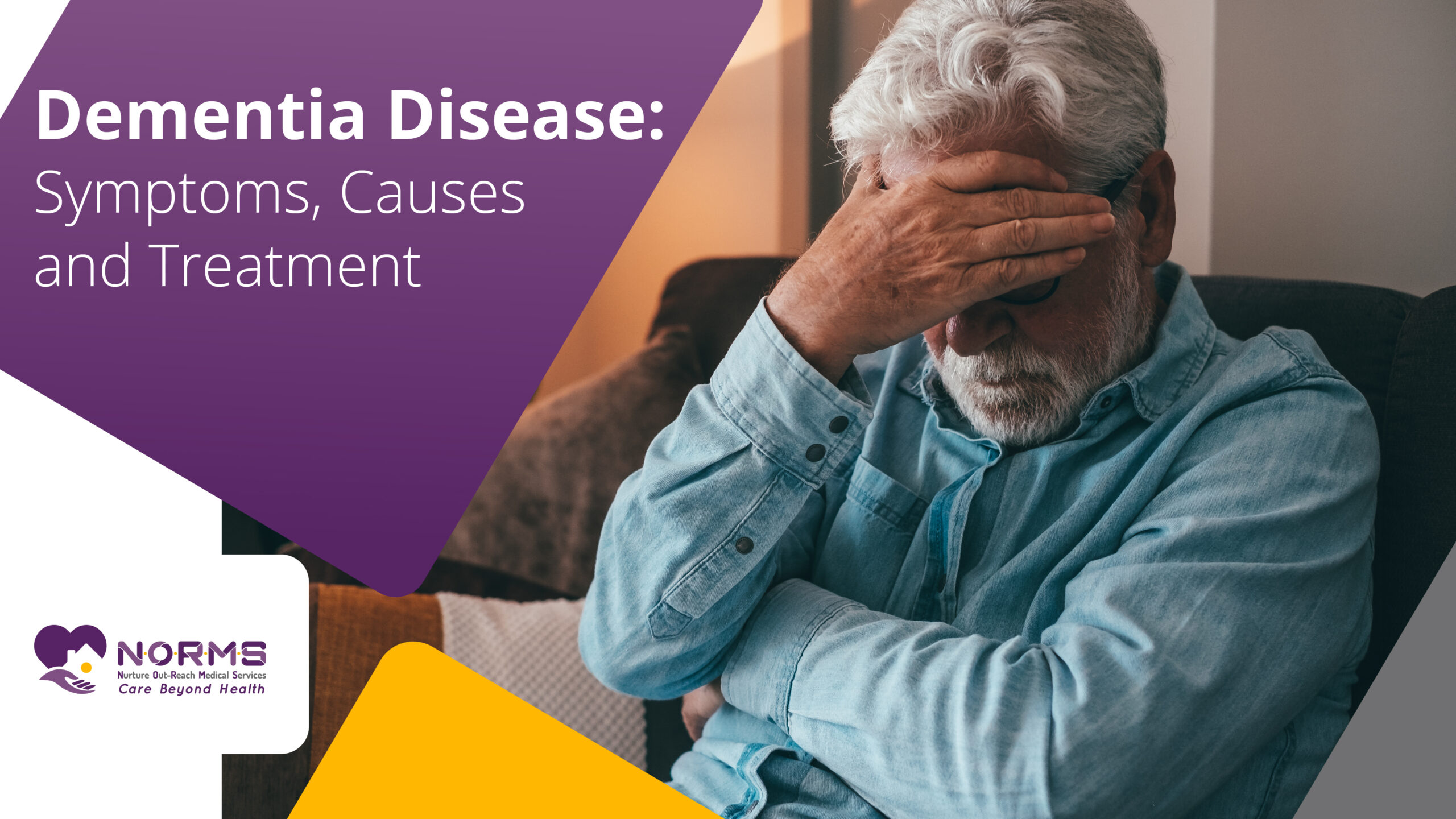
The word dementia is used to characterize a collection of symptoms that impair thinking, memory, and social skills. Dementia patients experience symptoms that interfere with their day-to-day activities. There isn’t just one type of dementia. Dementia is a result of several illnesses.
A common symptom of dementia is memory loss. It frequently occurs as one of the illness’s initial signs. However, memory loss by itself may not indicate dementia. Numerous factors can contribute to memory loss.
Although there are other causes of dementia, Alzheimer’s disease is the most common cause in older persons. Certain dementia symptoms may be reversible, depending on the underlying reason.
The second most prevalent form of dementia is vascular dementia, which is brought on by brain blood artery obstruction and microscopic hemorrhage. Mixed dementia is the condition in which a person has numerous dementia types concurrently with different brain alterations. Other non-dementia illnesses can also induce signs of cognitive impairment, including some that can be treated, like vitamin shortages and thyroid issues.
TABLE OF CONTENTS
The symptoms of dementia can differ according to the underlying reason, but given below are what most people with dementia experience.
– Problem recalling recent situations, names, or fine points.
– Recurrence of questions or narrations due to forgetfulness.
– Problem in articulating holistic communication.
– Lack of understanding of spoken or written language.
– Poor decision-making abilities.
– Inability to solve problems or think in an abstract or theoretical way.
– Issue with interpreting visuals.
– Problems in spatial relations and this coordination.
– Changes in feelings, affect, or temperament.
– Fatigue, irritability, restlessness, or lack of interest.
– Apprehension of time, location, and space.
– Being lost in your habitual place.
– Difficulty of complex mental activities.
– Complicacy of concept and abstract ideas comprehension.
– Coordination and motor skills problems.
– Problem in completing everyday activities.
– Decreased engagement in or feeling of indifference towards social events or hobbies.
– Challenges to keeping up relationships.
Dementia is the result of several different diseases that affect the brain cells. The damage disrupts the ability of brain cells to communicate among themselves. When the brain cells cannot communicate in a normal way, thinking, behavior, and emotions may be influenced.
The brain consists of various areas, each of which performs a different function, for example, memory, judgment, and movement. When cells in a specific area are damaged, that particular area fails to perform its normal functions.
The dementias which are different from each other are associated with specific types of brain cell damage in particular locations of the brain. Take Alzheimer’s disease for example; high levels of certain proteins inside and outside brain cells make brain cells unhealthy and lose the ability to communicate with other brain cells. The hippocampus which is the part of the brain responsible for learning and memory is the region of the brain and its cells are the ones that are usually damaged first. That’s why memory loss is usually one of the first warning signs of Alzheimer’s.
While most changes in the brain that cause dementia are permanent and worsen over time, thinking and memory problems caused by the following conditions may improve when the condition is treated or addressed:
Dementia is not a disease, but rather a term defined as a whole set of symptoms characterizing cognitive impairment, including memory loss, communication disabilities, impaired thinking, and the consequent compromising of daily life. It is however not a specific disease but is rather a circumstance that results from other underlying conditions like Alzheimer’s disease, vascular dementia, or Lewy body dementia. The signs may be different, and early detection helps in proper management and support. However, there is no cure for most types of dementia at the moment; timely intervention as well as the right care certainly can lead to an improvement in the quality of living for people suffering from this condition and their caretakers. The key to coping with dementia is knowing its causes, being able to differentiate symptoms from other conditions, and seeking medical assistance.
Every person is affected by dementia differently. No two persons will experience the same development of symptoms. Your social circumstances, personality, and overall health are all individual characteristics that can influence how dementia will likely affect your daily life.
As of now, there is no cure for dementia, but researchers are trying to find a cure for the disease. However, one can reduce the risk of dementia by keeping themselves physically and mentally healthy.
The only thing we can be certain is that a person is more prone to dementia as they get older. Dementia affects each person differently. No two people will acquire their symptoms in precisely the same way. Your personality, social environment, and general health are all unique traits that can impact how dementia will probably impact your day-to-day activities.